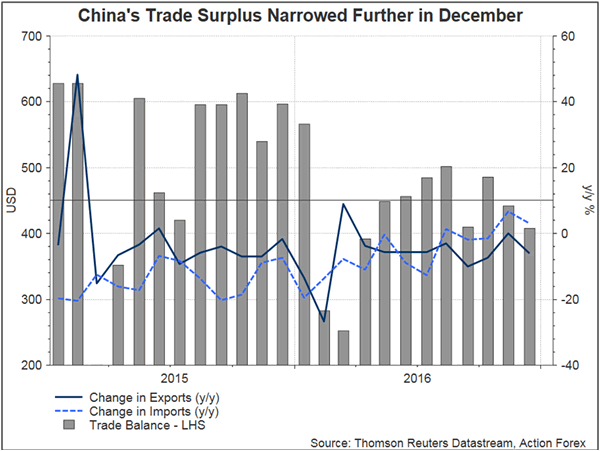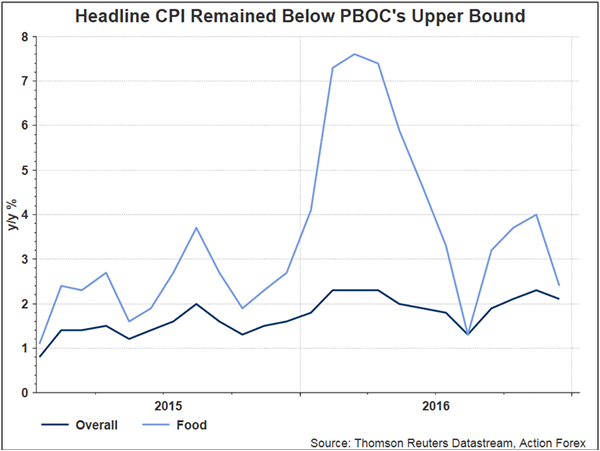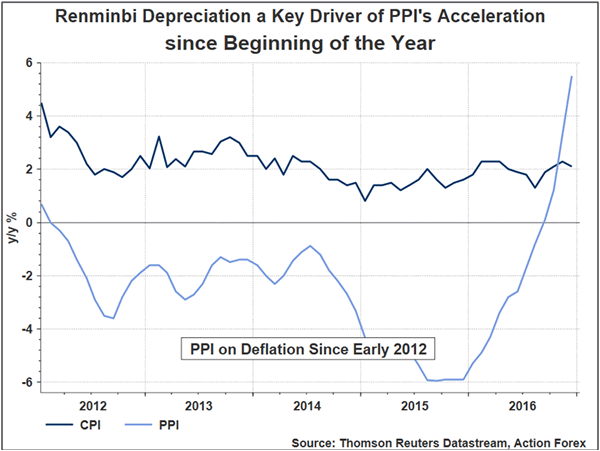China’s trade surplus narrowed to US$40.8B in December from USD44.6B a month ago. From a year ago, exports contracted -6.1% y/y, deteriorating from a -1.6% drop in November, while imports growth decelerated to +3.1%, from November’s expansion of +13%. Both contraction in exports and expansion in imports came in worse than expectations. We are concerned that rising oil prices would continue to weigh on the country’s balance of payment given China’s huge crude oil imports. Released last week, the country’s FX reserve was reported to have dropped -US$41B, to US$3.01 trillion, in December. Similar to the past 5 months, the decline was driven by government’s selling of foreign currencies to moderate renminbi depreciation

Fear of persistent decline in renminbi has triggered massive capital outflow from China, a situation that has caused the government to accelerate capital control measures. The latest report by S&P unveiled that China is attempting to deprecate the currency, deplete foreign reserves and intensify capital controls, all at the same time. Reuters earlier reported that China’s State Administration of Foreign Exchange (SAFE) has ordered banks operating in China to keep controls of capital outflow confidential and to prohibit their research arms from publishing negative outlooks renminbi. S&P echoed this by suggesting that SAFE “is insisting in oral instructions to dozens of banks that they don’t reveal its role in such restrictions”.
Released earlier in the week, China’s headline CPI eased mildly to +2.1% y/y in December from +2.3% a month ago. The moderation was mainly driven by food price which decelerated to +2.4% from November’s +4%. Non-food inflation, however, picked up to +2% from +1.8% previously, resulting in steady core inflation (excluding food and energy) of +1.9%. PPI soared to +5.5% y/y in December, from +3.3% a month ago. The broadly based improvement marked the fastest increase in over 5 years, thanks to renminbi weakness and higher commodity prices. The Nation Bureau of Statistics noted that 5 sectors, namely ferrous metal, coal, oil, petroleum and non-ferrous metal, together contributed 76% to the total PPI.


